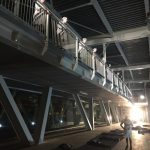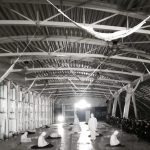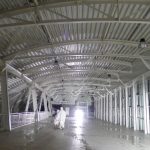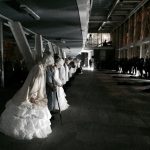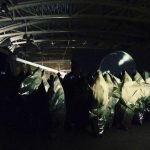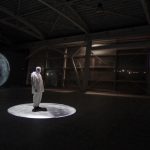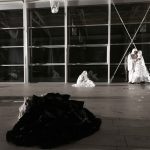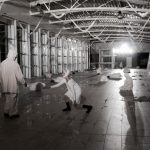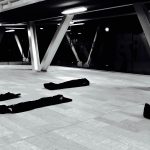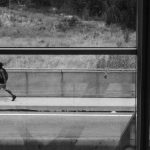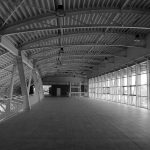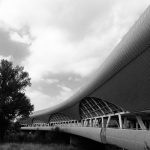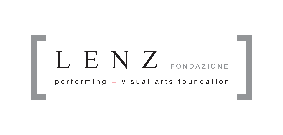
PARADISO. A SACRED PIECE
Divine comedy
Performative installations | Sound | Environmental site-specific
Cultural and artistic enhancement < PARMA
Cruise of the Vecchio hospital in Parma < PURGATORY (2017) Nature Gods Theater Festival
North bridge of Parma < PARADISO (2017) Festival Value
Thermovalist < INFERNO (2018) unrealized
The many years of reading and rewriting project for sounds and images of Verdian works through re -elaborations of contemporary musicians provides for in 2017 the sound reworking of the Four Sacred Pieces. The real meeting between Verdi and Dante takes place with the Laudi to the Virgin Mary, from the last song of the Paradiso, included in the Four sacred pieces (1898).
They are for female voices without accompaniment: the holy prayer of s. Bernardo is in full with pure sound transparency, According to that caste sobriety of the classical polyphony that the last Verdi resolved as a destination for Italian music, By teaching with the example as you really could "progress by returning to the ancient". Conceived and composed of Greens each autonomously compared to others over ten years, i Four Sacred Pieces are published in the 1898, a few years before the master's death (1901). At first they are not intended for diffusion, but at the will of Verdi himself, The last three, that is Laudi to the Virgin Mary, You e Unknown (1895-96), they saw a first public execution in Paris in 1898.
But Verdi does not attend you: Two years earlier, Giuseppina Strepponi had died and the now old master of Busseto does not feel able to face the long journey and the great effort of execution and direction. It is Arrigo Boito who takes care of the preparation of the concert and takes the place of Verdi. The only of Four Sacred Pieces which is not performed at the first Parisian is L’Ave Maria. For its origin it has very few things in common with the other pieces, except for the sacred text. The composition of this is produced by Verdi as a pure counterpoint exercise. Verdi accepts the challenge and Boito deals with the text. The location of the autograph of the Four Sacred Pieces it is still unknown.
PARADISO. A SACRED PIECE
Of the Four Sacred Pieces three are dedicated to the Virgin Mary. The female figure in the Verdian melodrama represents the salvation, innocence. Violetta, The two Leonora, Aida, Amner, Dedunsa. In the spiritual madrigal of Praise Each word of Dante becomes a musical image and again The eternal-female, The eternal feminine of Gretchen of Faust, becomes redemption. In ours Paradiso act, between a female multitude, only two male figures: Dante and San Bernardo. But the paradise that inhabit is only of the woman, Only through her body can you live, not see, the light.
The water flows inside the bridge as a water of the amniotic sack that contains the living being. Benedictus fructus ventris tui_ in the evident biological impossibility of the conception embodied by our Mary, curves for the weight of the years and by the chorus of elderly women, The philosophical nature of maternity is manifested: The tension to become two, upon transforming into new, other, unknown.
Bodies, voices, thoughts inside soft wraps lying on the ground to outline minimum borders, to protect faceless identity. Individual voices evaporate from the bags and in the air they touch themselves, add up, they overlap.
In the upper and discovery they recognize themselves, one after the other, they become in the sum chorus, Unique voice of singers voices. I greet you, Marie!, Jean-Luc Godard headlined the film work of 1984. Ave Maria! The mystery is already inside the great "water bag", It is already on the motorbike for the lift from the ground to the sky, The great body of the bodies moves vertically, The ascent begins in the dark night towards the ecstasy, And then the light.
In the thirty -three song of the third of the three cantics, The Trinity as a gravitational black hole, now collapse reached, swallows the universe of full -backs and previous meetings. The hendecasyllables become worlds, planets, Astri and galaxies and everything explodes in the sphere of light as the most powerful of supernova.
At the limit of reality, to the limit and beyond language.
And there is no more word, only song, vision, pure intuition, abandonment, silence. Estates on Dante/Paolo, The image of the unborn child Benedetto, to his similarity, the reflection and nostalgia to return to being a person.
The glass and steel monument, cumbersome testimony of the human limit, It is inhabited by a multitude of different spirits, of unlimited wanting to tend upwards, beyond the limit of the space/time of the Praise, Beyond the music of the master, beyond the language that still borders them in a timeless representation, between flashes of water images, of rotating spheres and divine advent.
PARADISO
Dramaturgy and imagoturgy | Francesco Pititto
Site specific installation, plastic elements, costumes, regia | Maria Federica Masters
Musica | sound installation | Andrew Azzali
Choir master | Gabriella Corsaro
In scena | Ensemble of Lenz Foundation and Association of Parma choirs
Dante Paolo Maccini
San Bernardo Frank Berimieri
Maria Delffina Rivii
Sante | Monica Baroni, Valentina Barbarini, Monica Bianchi, Lara Bonvini, Anna Cook, Alessia dell'Imperio, Monica De Palma, Emma Galante, Clare Garzo, Federica Goni, Valeria Meggi, Mirella Pongolini, Silvia Settimj, Sandra Soncini, Carlotta Spaggiari, Barbara Voghera
Coro | Elena Alfieri, Linda Azzolini, Caterina Benassi, Damiana Caserta, Giuseppina Cattani, Laura ride, File Anna Celentano, Gabriella Corsaro, Dina Germana Dalla Giacoma, Luciana Gerbella, Barbara Gianolini, Mary Garden, Monica Lodesani, Maria Alessandra Maini, Chiara Masetti, Paola Mittermini, Valeria Moscardino, Antonietta Porfiria Napoleone, Elena Nunziata, Cristina Ortalli, Maria Luisa Panizzi, Giuseppina Piccolo, Patrizia Polloni, Renata Sussmann, Daniela Tagliavini, Clelia Tamborini, Anna Maria Ugolotti, Sandra Vitali, Stefania Vitali, Angelica Zannettino dei Cori Ars Canto G. Verdi, CantaFabula di Felino, The Bannone fountain, Vocal, Sant’Ilario di Fognano, Renzo Pzzani, VOICE DRAW
Photo shooting | Fiorella Iacono
Treatment | Elena Sorbi
Organization | Ilaria Stocchi
Press office | Michele Pascarella
Media video | Stephen Cacciani
Technical care | Alice Scartapacchio, Gianluca Losi, Lucia Manghi
Assistant | Monica Bianchi
Production | Lenz Foundation
in collaboration with: Royal Theater of Parma < Festival Value
With the patronage of the Municipality of Parma
with the support of: MiBACT, Municipality of Parma, Emilia Romagna region, DAISM-Ausl
University of Parma
From the imagourgical suggestions to the itinerant mode, From the plastic dressing of the scenography to the amazing acts of actors, from the poverty of the costumes to the quiet chaotic of the sound system, This Paradiso. A sacred piece And, Indeed, a real summa of most of the Lenzian virtues, and Oltremondo in which, waiting for us without welcoming us, You will find a dizzying gallery of characters […] In Paradiso. A sacred piece, The mix of sentimental and intellectual factors and imaginative and cognitive ability is, From this point of view, exemplary of an attitude that educates the human being to the extent that it causes to adapt to the environment (scenic/real) without passing it passively, but recreating it by seeking in it (more).
Daniele Rizzo, Persinsala, 5 November 2017
With their subverting places and unusual surfaces for sites specific, Maria Federica Maestri and Francesco Pititto of Lenz Fondazione once again open visions on unpublished perspectives of space crossings, on other territories of a city, Parma, container of architectural and monumental revelations normally not usable. Col Purgatory They had opened the doors of the former old hospital that has subsequently become a library; with the next Inferno they will fall into the warm belly of the thermovalizer; Today, Instead, col Paradiso They led us inside the transparent and futuristic north bridge that stands out in the middle of the dried river of the Emilian town (more).
Giuseppe Distefano, Artribute, 28 October 2017
When you go down to the ground floor, The applause would want to add a big collective embrace. For emotions, For the realization and also for the extraordinary idea of bringing green and Dante right there, in the kingdom so far of the void or unnecessary dinners. And you would like to say that it was not just a beautiful theater evening (and music and poetry), Moreover, the sensitive laboratory that Lenz has been carrying out with very high results with intellectual disability for years. But it was also a beautiful lesson to the city: of how culture, The one that the next day makes you want to take Dante's verses and to deepen Verdi in hand, can actually transform a meaningless bridge into a paradise (more).
Gabriele Balestrazzi, Ilcielodparma, October 2017
And it is with the sung that Lenz chooses to make green dialogue with Dante outside the velvet and golden woods of the historic and central Regio theater, To lead him under the metal balconies and the glass walls of this contemporary and peripheral space suspended on the water. The voice is connective in perfect balance with the movements of the bodies (of the artists and the public), the weighing of the lights, The selection of the acting, The location of the sound, as well as the choice of materials and customs. Lenz returns to the city a significant experience of fertile grace, translating with performative language what words cannot be achieved, As Dante already recognized in the drafting of the last cantica: "Transhumar meaning for Verba is not able to" (more).
Tania Bedogni, PAC – Paneacquaculture, 17 October 2017
Space is architecture of Maieriana Memory, In the sense that the north bridge acoustically isolats the surrounding sound landscape but makes it permeable to sight. The inside dialogues with the outside by suspending the spectators who came numerous for Paradise a sacred piece, Inside a long-time and autonomous space-temporal bubble. Then in the end we hear Dante who "India" (becomes God) Cancel in space and time and then we understand that paradise on earth, Between tangential and ghostly factories, He is more human than a utopia (more).
Simone Azzoni, Gagarin Orbital Cultural Orbit, 21 October 2017
Man is the voice of the story. Dante is our eyes, our ears, our steps. We see, let's hear it, We cross the woman's paradise of Lenz Foundation because he sees him, hears him, He crosses him for us. With us. The "absolute pilgrim" chases, desire, want Beatrice, Like an angelic Orlando.
This seeking continuous is love. Love that builds, Already in his throbbing, the reality that dreams of living: The journey makes the journey. And the vision makes the space, In the immense void of the north bridge of Parma. It is no coincidence that Lenz has faced theOrlando Furioso and now travels the Divine Comedy: It is artistic practice, tiring and conscious, who feeds on that 'creative' love and mirrifies into that search for 'universal' human and unstoppable (more).
Matteo Brighenti, PAC – Paneacquaculture, 23 October 2017
A pregnant atmosphere of voices, luci, guests, Water and elaborate sounds - musical dramaturgy by Andrea Azzali - which has patrolled the feminine universe with engaging expressiveness in a sort of deeply human catharsis (more).
Alessandro Rigolli, Music Journal, 3 November 2017
A unique and rare beauty show (more).
Christian Donelli, Parma Today, 15 October 2017
The poetics Lenziana has this ability and strength, to unhinge places and bend them to the very meaning of dramaturgy, through a great architectural study to which to combine theatrical choices, parole, visions, worlds, projections, abstractionism. Collage is always a wave that leaves many doors wide open on a reflection perpetually in the making, A sum of images full of fascination and suggestions, a density of aesthetic supensions, curate, detail to, clean, set in a decisive penalty and in a lucid and transparent formal coherence (more).
Tommaso Chimenti, Recensito.net, 18 October 2017
Here the feeling of being in a large dripping belly maternal moods is very strong, An ascension that also descended into the female body. We still move for the last picture, where the evolutions of the choir continue circular and repeated around Dante “sensitive” by Paolo Maccini and where all the singers are hooded in waterproof sheets that survey the bodies in rigid angles and Dante remains only with the last words And the light is now. Paradise of women and singing, of moods and meat, of contrasts and light, of sweetness and fragility (more).
Franco Acquaviva, Curtain, 18 October 2017
The rustles of the costumes that abandon the room, The memory of the light in Dante's words, As in the incisive, rounded, Imagoturgical projection on the seabed, and a very powerful and mysterious final sound plot, they close between echoes and distant suggestions, vaguely science fiction, an amazing, contemporary, experiential path (more).
Francesca Ferrari, Theaterpolis, October 2017
Lenz succeeds, Once again, to investigate and surprise, Without the claim to give answers and without blush in the presence of two "sacred monsters" such as Verdi and Dante, which in the meeting are incredibly contemporary.
Margherita Portelli, Journal of Parma, 14 October 2017







